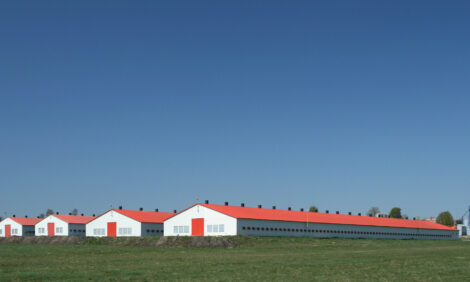



Flock Keepers Risk Spreading Disease
UK - Research from the Royal Veterinary College published in the journal, 'British Poultry Science', has revealed that chicken-keepers around Greater London have a lack of disease knowledge and insufficient awareness of laws, which could potentially have implications on disease control and animal welfare.Researchers collected baseline data on welfare, biosecurity and diseases of a sample of backyard chickens kept in the Greater London Urban Area from May to July 2010.
Information on keepers’ and flocks’ characteristics, housing and husbandry practices and owners’ knowledge of health problems in chickens and zoonotic diseases was collected and a welfare assessment protocol was developed and the flocks assessed accordingly.
Although chickens were generally provided with living conditions which allowed them to perform their natural behaviours, about three quarters of the flock owners did not comply with the regulations of the Department for Environment, Food and Rural Affairs (Defra) on the feeding of catering waste.
It has been illegal to feed catering waste to farmed animals in the UK since 2001 because some disease agents can survive in food products and facilitate the spread of the disease. For example feeding chickens with chicken meat and eggs carries the danger of spreading the virus of Newcastle Disease since this virus can preserve its infectivity for weeks in frozen carcasses as well as in eggs.
A serious concern was also the low level of awareness demonstrated by the owners about diseases like Marek’s Disease, Infectious Laryngotracheitis and Infectious Bronchitis which were recently diagnosed in backyard flocks in the UK and which could negatively affect birds’ welfare.
The lack of knowledge about zoonoses among backyard chicken keepers is another important finding. For instance, the presence of chickens has been shown to be a major risk factor for diarrhoea in children since their faeces may contain the disease agent Campylobacter jejuni. Since children are reported to be present in more than a third of the chicken-keeping households, they may be at risk of contracting the disease.
Other important findings included:
- Disease prevention measures such as vaccination and biosecurity, including limiting the access of human visitors, wild birds and rodents to the flocks were rare
- 40% of the flock owners stated that they would dispose of dead birds by burying them in their gardens when in fact the proper methods for this purpose such as incineration should be used to assist prevention of disease spread through groundwater and wild species
- Nearly half of the flock owners would not seek veterinary help in case of illness in the chickens. This raises questions regarding the adequate treatment of sick animals and related suffering in case of incorrect or no treatment
Iveta Karabozhilova said: “Our findings clearly indicate a communication gap between authorities and chicken keepers. Making information available and easily accessible through the most widely used channels is of high priority from a disease control perspective, in particular for notifiable exotic diseases characterised by quick spread and devastating effect, such as Avian Influenza and Newcastle Disease.”
“Even though evidence from our study shows that flock owners provide enriched living conditions to the chickens, they ought to realise that their pets are a farmed species and are subjected to regulations. They need to expand their knowledge beyond the diseases for which there has been much publicity, like Salmonellosis and Avian Influenza, and be aware of the fact that some diseases must be reported.”








